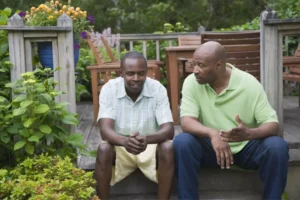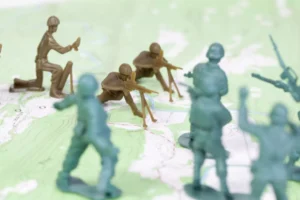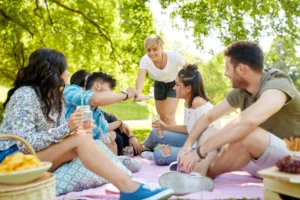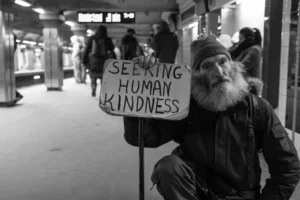I walked to my car with a smile on my face. I had just had dinner with an acquaintance-turned-friend, and I had that uplifted feeling that comes with a good conversation over a tasty meal. Our friendship had begun through social media and our daughters’ shared art classes, but around the start of the year I decided I wanted more of this woman in my life, so we met for coffee a few times and eventually upgraded to dinner.
Last year my social life underwent a radical upheaval when our family changed churches. The network I had invested in and depended on for eight years was suddenly and unceremoniously liquidated. The circumstances that necessitated the change were beyond my control, and leaving the community was a hard loss.
A few faithful friends continued the journey with me, but I was blindsided by a largely “friendless” season. When my “proximity friends” — the people I would have a friendly chat with on Sunday morning or at Bible study — faded away, I found myself lonely and depressed. I explained my predicament to my counselor, who encouraged me to press into lifegiving relationships wherever they could be found. “You might have to get creative,” she said.
What are lifegiving relationships?
I’ve changed communities several times in my life. A few notable transitions were leaving home for college, moving to Colorado for my first job, and moving to California eight years ago. With each of these major transitions, I had to start over socially and build community from scratch. Over time, I discovered friendships that delivered encouragement and spurred me on to be the best version of myself. Not every one of my friendships had these qualities, but many did.
To determine what qualifies as a “lifegiving relationship,” you first must discern what gives you life. Do you value a friend who listens to you and offers wise advice? Maybe you appreciate someone who joins you in your favorite activities. Perhaps your top priority is a loyal friend who checks in on you and offers regular support.
I appreciate friends with whom I can have heart-to-heart conversations that point us both to God’s sovereignty and goodness. I love to compare experiences, be curious together, empathize with each other’s struggles, and laugh a lot — because life is funny. When I lack uplifting relationships like these, I become prone to discouragement and a gloomy perspective on life.
Connection versus community
After making our church move, I shared with a wise friend that I felt I had lost my community as a result. I discovered that some of my relationships there were based on the convenience of seeing each other regularly. When the activities we did together ceased, so did the friendships, creating a deep sense of loss.
My friend pointed out that what I viewed as “community” may have actually been “connection.” Few of those connections were the friend I described above who would meet with me regularly for heart-to-heart conversations. They were friendly faces who greeted me Sunday morning and shared a laugh with me before Bible study. These touchpoints added up and made me feel desired and connected.
When all that dissipated, it revealed a problem that had been there for some time — I lacked deep, lifegiving relationships. Apart from one true-blue friend and a girth of social media interactions, I was starving for authentic relationships that went beneath the surface. I was subsisting on connection instead of cultivating community.
Creating space for community
This was an important realization. At first, I wasn’t sure how to right the ship. That’s when my counselor suggested getting creative. I could set up a weekly call with a friend or relative in another state who offered me the encouraging conversation I craved (even while taking a walk). I could trade in time on social media for in-person meetings with people I cared about. And I could reach out to someone new who I’d been wanting to get to know better and put a coffee date on the schedule.
I took her advice and looked for ways to replace the connection I had lost with tangible, lifegiving friendships. There is not one way to do community. What has always worked best for me is seeking out one-on-one quality time with individual friends. With this method I can only maintain a handful of close connections, but they are more fulfilling than a larger number of superficial interactions. As I focused on lifegiving relationships that filled my cup, my spirits lifted and I didn’t feel as alone.
This isn’t the first time I’ve written about friendship and the benefit of seeking out individuals who encourage you and help you grow. But this year I have learned that community doesn’t just happen. You must cultivate it. And sometimes you have to get creative. But making space for community is always worth the effort.
Copyright 2024 Suzanne Hadley Gosselin. All rights reserved.











